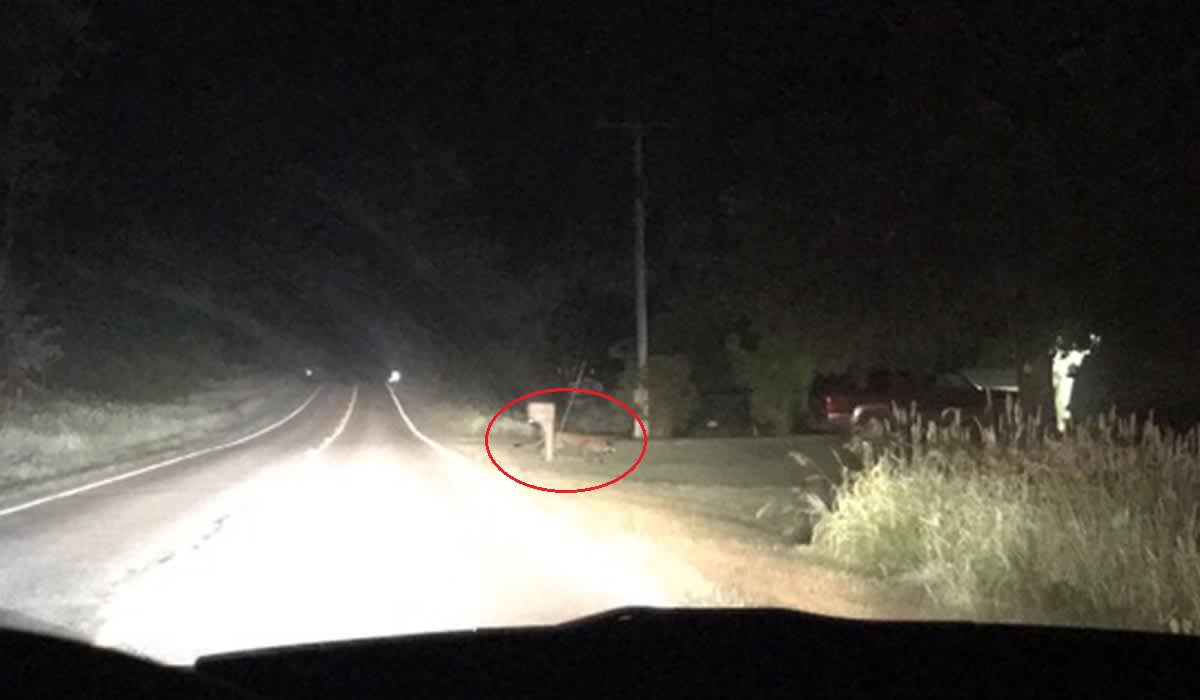DNR Confirms: Michigan’s First Ever Lower Peninsula Cougar Sighting
OutdoorHub Reporters 06.29.17

For the first time ever, the Michigan DNR has confirmed a cougar sighting in Michigan’s Lower Peninsula.
The cougar was reportedly seen on June 21 in Clinton County just northeast of Lansing, according to a DNR news release.
From the information we gathered, a Michigan resident was driving near the Rose Lake Wildlife Area when he spotted the cougar in his headlights. He said he took the photo as the big cat was crossing the road before disappearing in a wooded area, the DNR said.
Once the DNR received a photo of the animal, a team of cougar experts determined the animal in the photo was definitely a cougar.
“Even with this verification, questions remain, especially regarding the origins of the animal,” said Kevin Swanson, DNR wildlife specialist and member of the agency’s Cougar Team. “There is no way for us to know if this animal is a dispersing transient from a western state, like cougars that have been genetically tested from the Upper Peninsula, or if this cat was released locally.”
Cougars originally were native to Michigan, but were extirpated from Michigan around the turn of the century.
The last time a wild cougar was legally taken in the state was near Newberry in 1906. Over the past few years, numerous cougar reports have been received from various locations throughout Michigan. Until this time, all confirmed sightings or tracks have been in the Upper Peninsula. Since 2008 a total of 36 cougar sightings have been documented in Michigan’s U.P. To date, the DNR has not confirmed a breeding population of cougars in Michigan.
Cougars are protected under the state Endangered Species Act and cannot be harmed except to protect human life.
The DNR is encouraging Clinton County residents to set up trail cameras on their properties and should report any sightings or photos to mi.gov/eyesinthefield.
They also noted that, while the possibility is rare, if you do find yourself in a cougar situation, the DNR says you should do the following:
• Face the animal and do not act submissive. Stand tall, wave your arms and talk in a loud voice.
• Never run from a cougar or other large carnivore. If children are present, pick them up so they cannot run.
• Do not crouch and get on all fours.
• If attacked, fight back with whatever is available. DO NOT play dead.
• Report the encounter to local authorities and the DNR as soon as possible.

